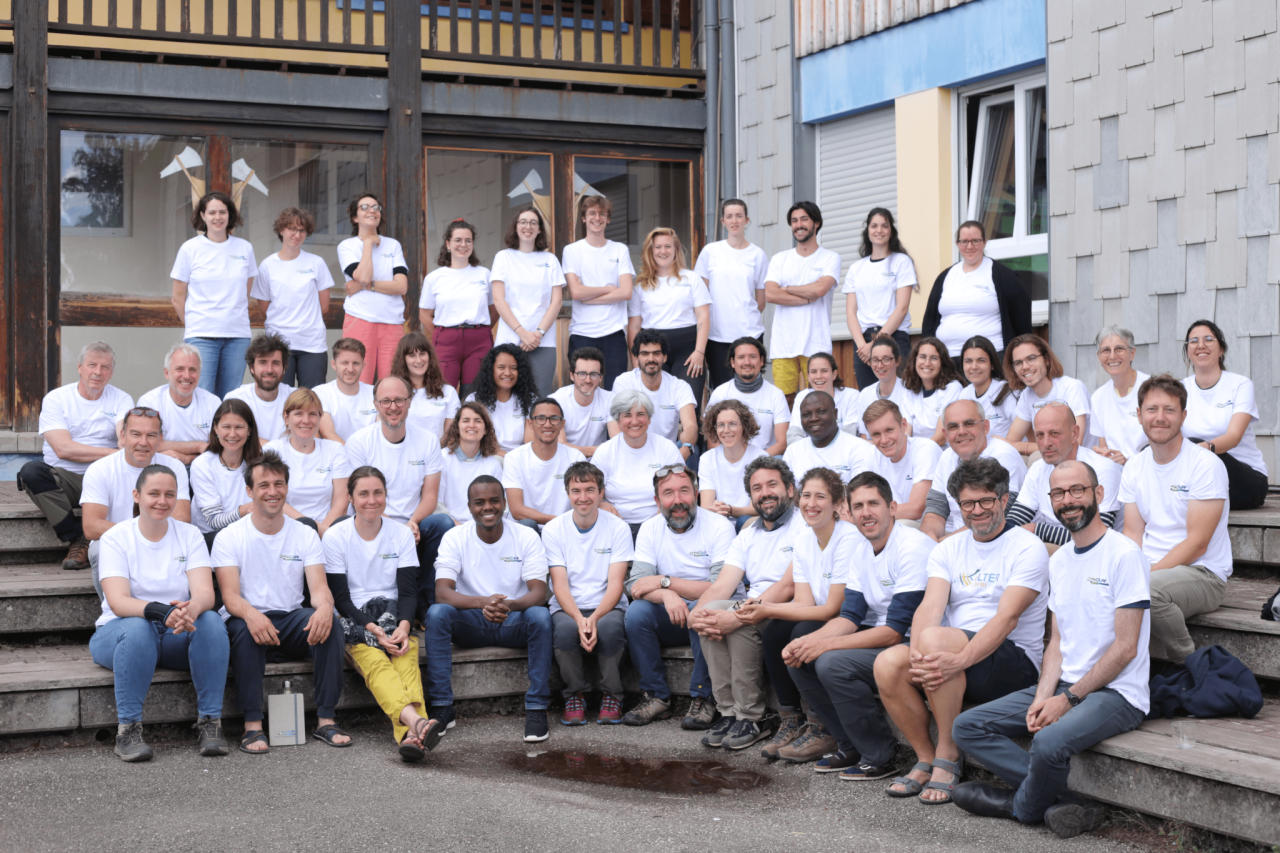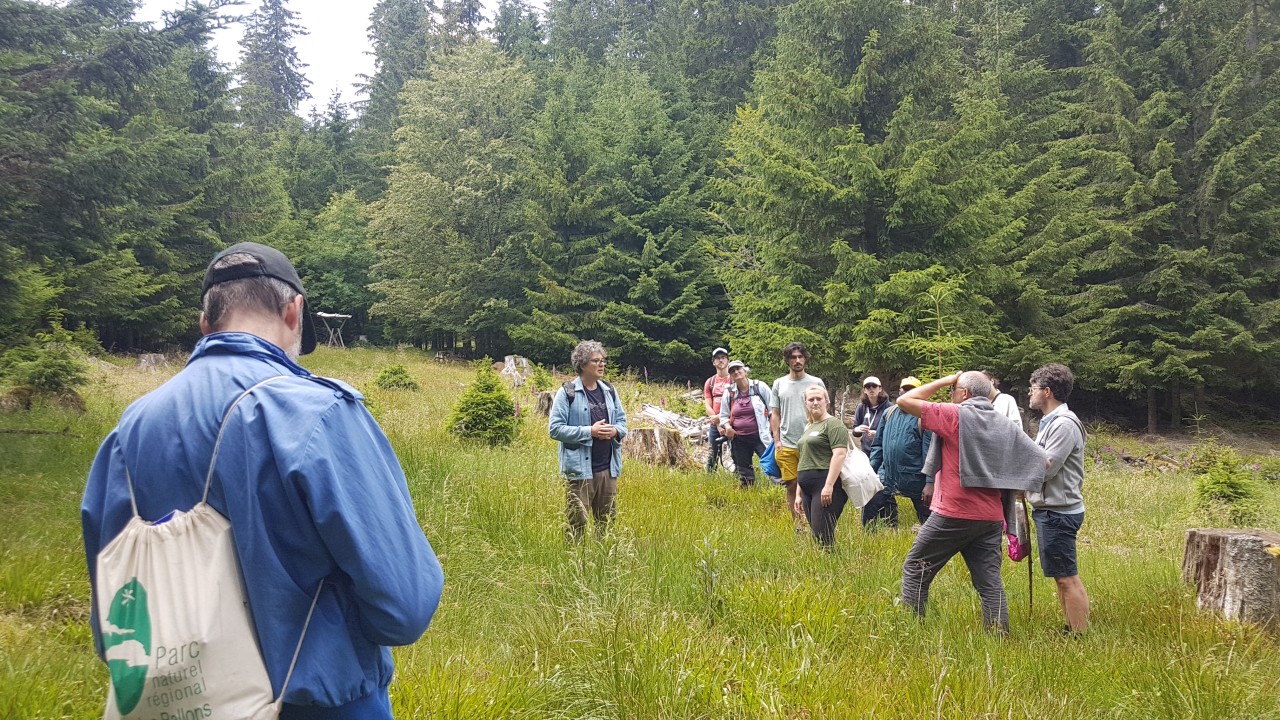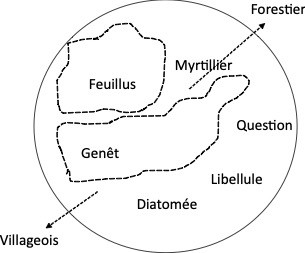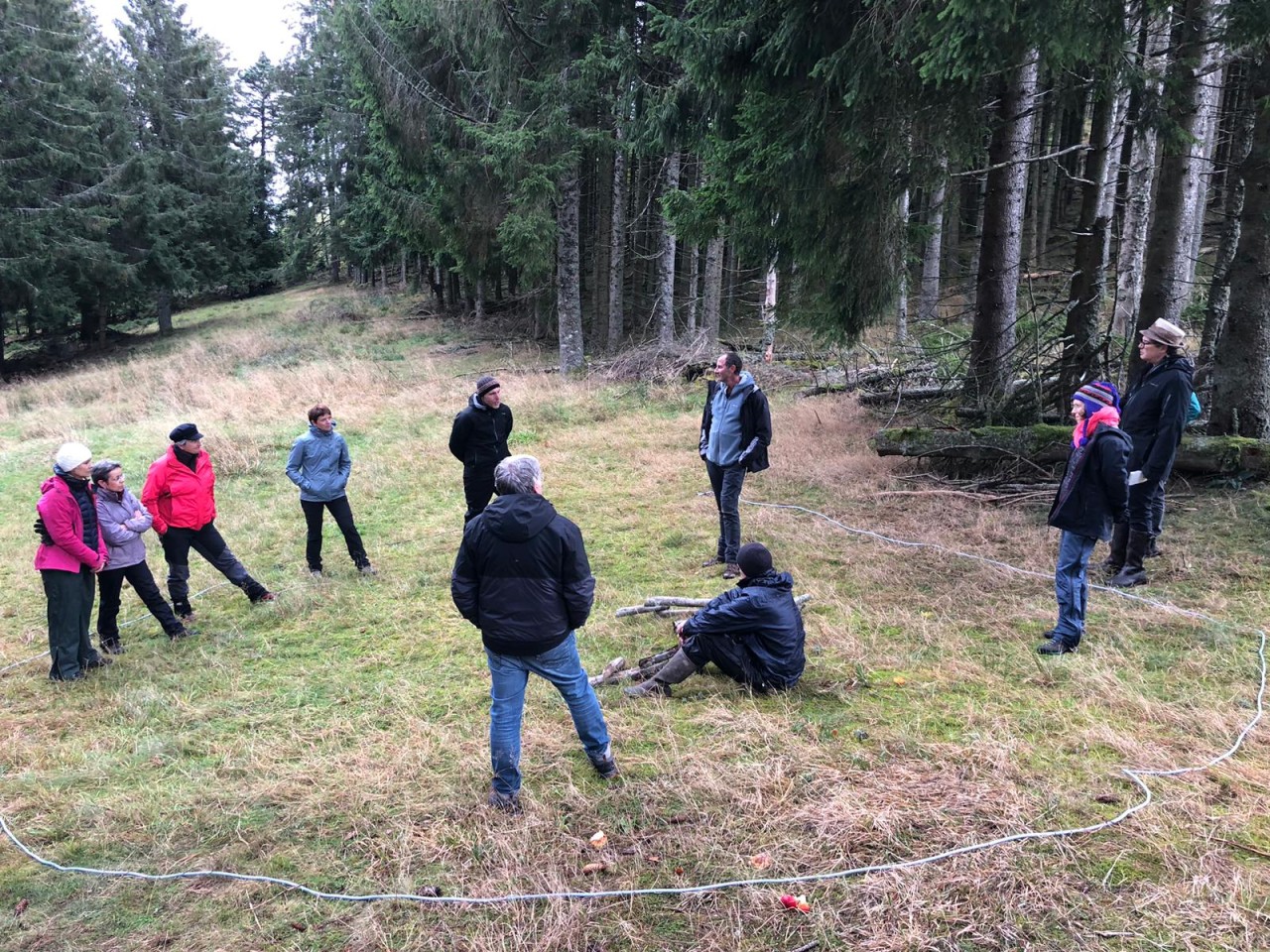Exploring sensitively designed experimental setups with scientists
A TP of transforming experiences
OZCAR-IR (Critical Zone Observatories, Applications and Research) is a national research infrastructure launched in December 2015. Supported by the French Ministry of Higher Education, Research and Innovation, the initiative aims to federate observatories and instrumented sites interested in different compartments of the Critical Zone. This concept - which refers to the outermost layer of the planet, home to life and humanity, between sky and rocks - aims to decompartmentalize scientific objects linked to the functioning of the Earth system (water, soil, rocks, trees, air, climate, etc.), by creating a dialogue between the disciplines responsible for studying these objects.
With this in mind, IHEPAT took part in the 3rd edition of the OZCAR summer school, held from July 1 to 7, 2023 in Aubure, an Alsatian village that is home to the OHGE observatory (Observatoire Hydro-Géochimique de l'Environnement) of the University of Strasbourg. This summer school brought together a varied audience of doctoral students and researchers.
On this occasion, the IHEPAT experimented with a new kind of practical course. Alongside hydrology, geochemistry, hydrogeophysics and forest ecology, the transformative experiments TP offered participants the opportunity to enter into an experimental setting to apprehend and interpret a complex situation through their sensitive involvement and the expression of their feelings. This change of register enabled them to consider other types of knowledge to be found in a place, and to explore new ways of being affected, in a way that Bruno Latour proposed to call geopathic. Over 4 consecutive days, a series of systemic constellations were conducted. In these constellations, the group puts itself at the service of a question to be posed to the place. In a circular space, participants embody different entities of a system, drawing on their feelings to embody them. These entities can be human, in the case of systemic constellations, or organizational, and are supplemented here by non-humans. The ways of relating to place are borrowed from ecopsychological practices such as Joanna Macy's "assembly of all beings".

For the TP, we decided to stick to a single site in order to collectively experience a process of deepening and evolving a question through the repetition of constellations involving new people every day. By taking into account the effects of each constellation on the progressive reformulation of the question posed at the same site, we were able to link a series of shared experiences into a common frame of reference for all Summer School participants. Together, we tested and calibrated an experimental device for gathering situated knowledge. During our preparatory visit with the observatory team, the Steinbach spring site where we conducted the constellations had been presented to us based on an issue centered on the negative impacts of wild ungulates on forest regeneration. Plots that have been surrounded by fences for the past fifteen years or so highlight the consequences of this browsing on forest vegetation, in terms of the diversity of species they support compared with unprotected areas. The question guiding the first constellation in the series immediately focuses on this issue of sylvo-cynégétique balance.

However, we quickly realized that this technical question basically presupposes that we know better than the environment what counts or what is good for it, whereas it's a question of listening to what comes, of allowing ourselves to be affected by the otherness of the place. This is why, understanding the need to flesh out the initial question and open it up, we simulate a request from the mayor of Aubure to have her council take into consideration the interests of the area's inhabitants, foresters and hunters. At the end of the second constellation, the question of water and human appropriation of water comes to the fore. This evolution changes the way we approach the place in the third constellation: we now come to "the home of a spring" to ask the question of water sharing, in a situation of increasing scarcity of the resource. This new configuration allows a new element, fire, to take center stage, leading to a profound recomposition of the environment. We then decide to attempt a kind of dialogue with the environment, to ask how to give back what we take, and thus to better understand the meaning of what we take from the environment, in the fourth constellation, which gives way to the element of wind and storms.
As with the other TPs, a feedback session was held with all participants to discuss the conclusions drawn from the implementation of this device. Beyond the partial conclusions, it is the long-term effects on the participants that are sought. This experimental approach is an iterative process whose purpose is less to produce answers to the questions posed than to enable those who take part to let themselves be affected by listening to the environment and gradually learn the new questions that this adventure reveals to them.
This experience was reported in the OZCAR-IR network newsletter, which you can find here.

This project was extended in October 2023 with teams from the Ecole & Observatoire des sciences de la Terre (EOST) of the University of Strasbourg and the CNRS, as part of a cross-disciplinary approach to the issue of water sharing.
To find out more, read the EOST newsletter



